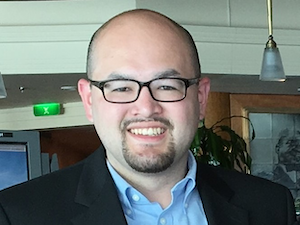

For Brian Lim MPP ’21, completing his master’s degree has launched his new career in technology policy. From an internship that led to a fellowship and now a full-time position, Lim has been applying his tech policy skills at work while studying challenges like Section 230, the digital divide or data privacy.
“I'm a policy analyst interested in cybersecurity and privacy, which is where I focused my final master’s project to write a position paper on the key debates around comprehensive federal privacy legislation and a power map of influential voices in those debates,” he said.
“What do we do about privacy? Some of the recent privacy scandals have shown we don’t have a good understanding about what is happening to our data, and we don’t have the legal structures to effectively control it. I’m interested in how we protect our privacy, while also supporting innovation and industry,” he said.
Early in his MPP, Lim began an internship at Brighthive, a startup that creates platforms for large-scale data sharing and collaboration.
“My work at the startup has shaped how I see tech companies in general, and changed how I see policy more generally. If a law takes shape, how does that affect a company?” Lim said.
Lim said he knew his MPP was the right choice for his career. A Raleigh area native, Lim received his bachelor’s degree from UNC Chapel Hill in economics and peace, war and defense.
“I have always wanted a career with positive impact. A policy degree seemed like a good way to have that in the technology industry. I am able to go to work and move policy in a direction that will have positive impact,” he said.
Before starting his MPP, Lim was an innovation economist for several years with RTI International, a North Carolina based research institute. His work has included economic analyses of various policy issues, ranging from the costs and benefits of environmental legislation in Abu Dhabi to evaluations of pilot digital identity technologies funded by NIST.
“I started at RTI knowing that I would go back to grad school. At RTI, I had the opportunity to explore different fields – agriculture, environment, health – and then landed in the technology policy space and I became interested in privacy,” he said.
He chose Sanford for his MPP because of the community.
“I had conversations that made me feel that I would get the one-on-one experience I wanted,” he said.
“The best part of Sanford is the people – professors and other students. Other programs are collegial, but not friendly. Sanford is incredibly friendly. Every person has been not just a good friend, but someone to rely on. And the professors are really willing to go to bat for students,” he said.
One of the highlights of his MPP experience was working on research with Professor Matt Perault and fellow students to summarize all of the legislation surrounding Section 230. The research was published in Slate just before graduation.
When Lim began his MPP, his classes were in person. After his first semester, COVID-19 hit. Overnight, all of his classes were online.
“One thing COVID drove home was how much technology affects our lives. Suddenly everyone was relying on Zoom. If I did not have good internet connection, I would not be in class. Access to the internet can change opportunities for individuals,” Lim said.
Throughout COVID-19, Lim said he learned lessons that will bode well not only for tech policy, but also for virtual work, as his new full-time position as client success manager at Brighthive is fully remote.
